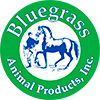Is your horse at risk for gastric ulcers? Studies of groups of horses under different management practices have identified gastric ulcers in as many as 50-90% of horses examined(1). The nature of the horses digestive tract combined with our management increases the risk for developing gastric ulcers. Ulcers can occur in any age group, from foals to adults. Performance horses are most commonly affected. As many as 50- 90% of these horses may have gastric ulcers as determined by gastroscope (1).
If you suspect that your horse might be suffering from gastric ulcers it is important to call your veterinarian.
Clinical signs that your horse might have ulcers:
- inappetence/decreased appetite
- teeth grinding
- salivation
- irritable behavior
- abdominal pain
- dullness
- decreased performance
- reluctance to work
- poor body condition and weight loss
Clinical signs that your foal might have ulcers:
- decreased suckling
- diarrhea
- dorsal recumbency (rolling up on the back)
There is no one specific cause of gastric ulcers. The equine stomach has protective mechanisms which include blood flow to the gastric mucosa, buffering capacity, mucous covering, integrity of the mucosal epithelium and the micro flora population. Ulcers occur when the protective mechanisms of the gastric mucosa are overwhelmed by the acidic environment.
As a proportion of body size, the horses stomach is much smaller than in other species. The horses stomach is adapted to ingest small amounts of feed stuffs constantly throughout the day. This happens naturally for horses who are out on pasture grazing all the time. The horses stomach is always secreting acid, this acid secreted into the stomach aids in digestion. Most animals only secrete acid in response to a meal, unlike the horses constant secretion of acid into the stomach. An empty stomach cannot effectively neutralize the acid that is in constant supply. Therefore, it is best to make sure that your horse constantly has access to pasture or hay.
Most animals are meal feeders, acid is secreted into the stomach in response to the presence of food. Horses, as grazers, are constantly secreting acid into the stomach. Our management tactics of meal feeding (typically 2X/day) results in a situation where there is no feed in the stomach to neutralize the continuous supply of acid, therefore giving your horse consistent access to pasture or hay is a good practice as it helps to neutralize these stomach acids. Additionally high concentrate (grain) diets, produce volatile fatty acids result in increased acidity of the stomach (2).
Stress such as exercise, confinement, transport, change in environment, new horses in the barn/pasture or any environmental factors which upsets the norm may influence the protective mechanisms of the stomach and can contribute to the development of ulcers.
Initially, the stomach was considered to be practically a sterile environment. It was thought that the high acid content prevented the maintenance of a stable microflora population. However, a variety of acidophilic (acid loving bacteria) have been found to colinate the surface of the gastric mucosa. These bacteria are one of the factors that protects against the development of gastric ulcers. Lactobacillus reuteri is one these protective acidophilic bacteria (3).
The bacteria , Helicobacter pylori, is a casual agent of gastric ulcers in humans as is a Helicobacter like bacteria in dogs and cats. In humans L. reuteri has been shown to be effective in the treatment of gastric ulcers, (4,5) Contrary to other species of bacteria L.reuteri survives and proliferates in the acidity of the stomach adhering to the gastric mucosa and supporting the mucous layer.
In Conclusion, gastric ulcers in horses can result as a combination of horse physiology and our managed practices that can lead to the horses normal protective mechanisms being overwhelmed by the acidic environment of the empty stomach. Horses digestive tracts are designed to be constantly ingesting feedstuffs such as pasture and/or hay in the face of constant acid secretion into the stomach. The microflora of the gastrointestinal tract play an important role in these protective factors. EquiOtic, which contains live Equine L. Reuteri, can help maintain your horses natural healthy gut flora. L. Reuteri lives in the stomach supports the vital mucous layer and prevents attachment of harmful bacteria
References
1 Equine Gastric Ulcers, Young A. UC Davis Center for Equine Health, 2019 Link: https://ceh.vetmed.ucdavis.edu/health-topics/equine-gastric-ulcer-syndrome
2 Equine Gastric Ulcers: Special Care and Nutrition. McClure S. American Association of Equine Practitioners, 2016 Link: https://aaep.org/horsehealth/equine-gastric-ulcers-special-care-and-nutrition
3 Bernard, W. V., Sebastian, M., & Hemming, B. (2011). Salmonella Antimicrobial Activity of Selected Strains of Enterolactobacillus Species Isolated from the Gastrointestinal Tract of the Horse. Journal of Equine Veterinary Science, 31(7), 396-399. https://doi.org/10.1016/j.jevs.2011.03.016 Link: https://mdanderson.elsevierpure.com/en/publications/salmonella-antimicrobial-activity-of-selected-strains-of-enterola
4 Emara, Mohamed H et al. “Lactobacillus reuteri in management of Helicobacter pylori infection in dyspeptic patients: a double-blind placebo-controlled randomized clinical trial.” Therapeutic advances in gastroenterology vol. 7,1 (2014): 4-13. doi:10.1177/1756283X13503514 Link: https://pubmed.ncbi.nlm.nih.gov/24381643/
5 Dore, Maria P et al. “Inclusion of Lactobacillus Reuteri in the Treatment of Helicobacter pylori in Sardinian Patients: A Case Report Series.” Medicine vol. 95,15 (2016): e3411. doi:10.1097/MD.0000000000003411 Link: https://pubmed.ncbi.nlm.nih.gov/27082621/

